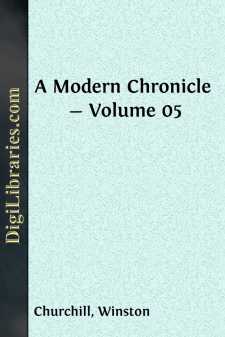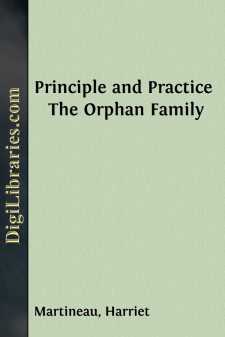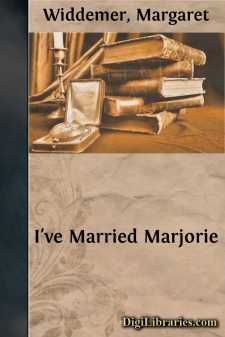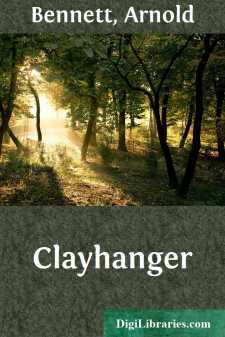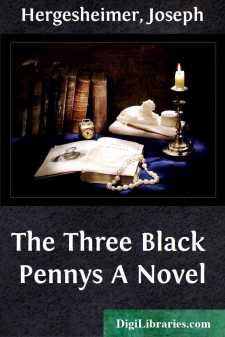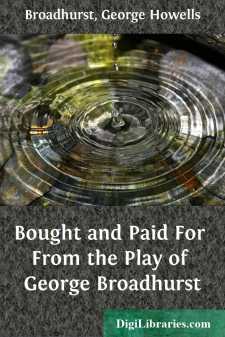Fiction
- Action & Adventure 182
- Biographical 15
- Christian 59
- Classics 6965
- Coming of Age 4
- Contemporary Women 1
- Erotica 8
- Espionage/Intrigue 12
- Fairy Tales, Folklore & Mythology 235
- Family Life
- Fantasy 117
- Gay 1
- General 596
- Ghost 32
- Historical 808
- Horror 42
- Humorous 159
- Jewish 25
- Legal 4
- Medical 22
- Mystery & Detective 314
- Political 49
- Psychological 41
- Religious 64
- Romance 157
- Sagas 11
- Science Fiction 730
- Sea Stories 113
- Short Stories (single author) 537
- Sports 10
- Suspense 1
- Technological 8
- Thrillers 2
- Urban Life 29
- Visionary & Metaphysical 1
- War & Military 173
- Westerns 199
Family Life Books
Sort by:
CHAPTER I ASCENDI Honora did not go back to Quicksands. Neither, in this modern chronicle, shall we. The sphere we have left, which we know is sordid, sometimes shines in the retrospect. And there came a time, after the excitement of furnishing the new house was over, when our heroine, as it were, swung for a time in space: not for a very long time; that month, perhaps, between autumn and winter. We...
more...
Chapter One. Let none sit down to read this little tale, whose interest can only be excited by the relation of uncommon circumstances, of romantic adventures, of poetical perplexities, or of picturesque difficulties. No beauties of this kind will be here found. I propose to give a plain, unaffected narrative of the exertions made by a family of young persons, to render themselves and each other happy...
more...
The fine old house stood on Jumping Tom Hill, above the town. It had stood there before there was a town, when only a cabin or two fringed the woods below, nearer the shore. The weather boarding had been brought in ships from England, ready sawed; likewise the bricks of the chimney. Indians used to come to the house in the cold of winter, begging shelter. Given blankets, and food, and drink, they slept...
more...
CHAPTER I The sun shone, that morning, and even from a city office window the Spring wind could be felt, sweet and keen and heady, making you feel that you wanted to be out in it, laughing, facing toward the exciting, happy things Spring was sure to be bringing you, if you only went a little way to meet them—just a little way! Marjorie Ellison, bending over a filing cabinet in a small and solitary...
more...
by:
Arnold Bennett
The Last of a Schoolboy. Edwin Clayhanger stood on the steep-sloping, red-bricked canal bridge, in the valley between Bursley and its suburb Hillport. In that neighbourhood the Knype and Mersey canal formed the western boundary of the industrialism of the Five Towns. To the east rose pitheads, chimneys, and kilns, tier above tier, dim in their own mists. To the west, Hillport Fields, grimed but...
more...
A twilight like blue dust sifted into the shallow fold of the thickly wooded hills. It was early October, but a crisping frost had already stamped the maple trees with gold, the Spanish oaks were hung with patches of wine red, the sumach was brilliant in the darkening underbrush. A pattern of wild geese, flying low and unconcerned above the hills, wavered against the serene, ashen evening. Howat Penny,...
more...
by:
Ford Madox Ford
PART IITHIS is the saddest story I have ever heard. We had known the Ashburnhams for nine seasons of the town of Nauheim with an extreme intimacy—or, rather with an acquaintanceship as loose and easy and yet as close as a good glove's with your hand. My wife and I knew Captain and Mrs Ashburnham as well as it was possible to know anybody, and yet, in another sense, we knew nothing at all about...
more...
by:
Francois Coppee
On that morning, which was the morning before Christmas, two important events happened simultaneously—the sun rose, and so did M. Jean-Baptiste Godefroy. Unquestionably the sun, illuminating suddenly the whole of Paris with its morning rays, is an old friend regarded with affection by everybody, It is particularly welcome after a fortnight of misty atmosphere and gray skies, when the wind has cleared...
more...
Chapter I "How is he now, doctor? Don't—don't tell me there is no hope!" The wife, a tall, aristocratic looking woman who, despite her advanced years, her snow-white hair, her eyes now red and swollen from weeping, and pallid face seamed with careworn lines from constant vigils, still showed traces of former beauty, scanned the physician fearfully, trying to read in the expression...
more...
CHAPTER I Before you fairly start this story I should like to give you just a word of warning. If you imagine you are going to read of model children, with perhaps; a naughtily inclined one to point a moral, you had better lay down the book immediately and betake yourself to 'Sandford and Merton' or similar standard juvenile works. Not one of the seven is really good, for the very excellent...
more...


